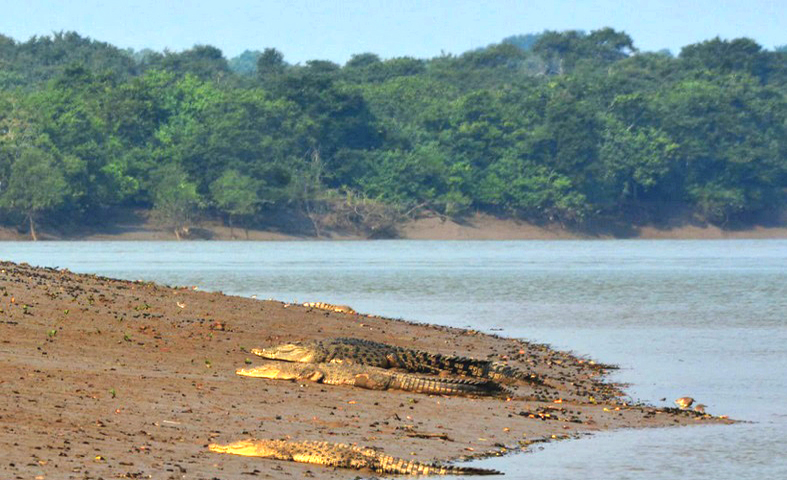Kendrapara: An expert said that the conservation programme of saltwater crocodiles in Bhitarkanika National Park has turned out to be the most successful one in the country.
Dr Sudhakar Kar, a noted herpetologist and the former wildlife researcher of state forest department, dwelt on the success of the project while addressing a seminar on ‘ Estuarine Crocodile and Conservation in Bhitarkanika National Park; A success ‘ Wednesday, organized by the Zoology Department of Kendrapada Autonomous College.
The three species of crocodile, saltwater or estuarine crocodile, Mugger and Gharial breeding rearing programme had begun in 1974 in 34 places in West Bengal, Madhya Pradesh, Uttar Pradesh, Bihar, Odisha and other states in India, he said.
Crocodiles were threatened in India due to indiscriminate killing for commercial purposes and severe habitat loss until the enactment of the Wildlife (Protection) Act 1972.
He said all three species of crocodiles Gharial (Gavialis gangeticus), Mugger (Crocodylus palustris) and Saltwater crocodile (Crocodylus porosus) in the river systems of Odisha were on the verge of extinction by the seventies.
In 1974 United Nations Development Programme(UNDP) and the Food and Agricultural Organization (FAO) in collaboration with the government of India launched a crocodile conservation project.
The main objective of the crocodile conservation project was to protect their natural habitats and to rebuild the population quickly through captive breeding as the survival rate of the crocodile hatchlings in nature is low because of predation, added Dr Kar.
The forest department stopped the crocodile rearing programme in 1995 as the crocodile population reached a saturation point from mere 96 in 1974 to more than 1000.
But each year the forest department collects eggs from a nest to breed them in the crocodile hatchery and rearing complex at Dangamal. As per the 2022 January crocodile census report, the crocodile population reached 1,784 in the Bhitarkanika National Park, Kar said.
Crocodiles are also an essential part of the ecosystem and help keep the riverine ecology clean and guard mangrove forest against tree cutters and poachers as locals fear reaching near the mangrove forest by crossing the crocodile-infested rivers and creeks, said Dr Basanti Sukla of Zoology department of the college.
Bhitarkanika is home to nearly 70 per cent of India’s estuarine crocodile or saltwater crocodiles. The salt-water crocodile population in Bhitarkanika has increased manifold from 96 in 1975 to 1,784 so far.
